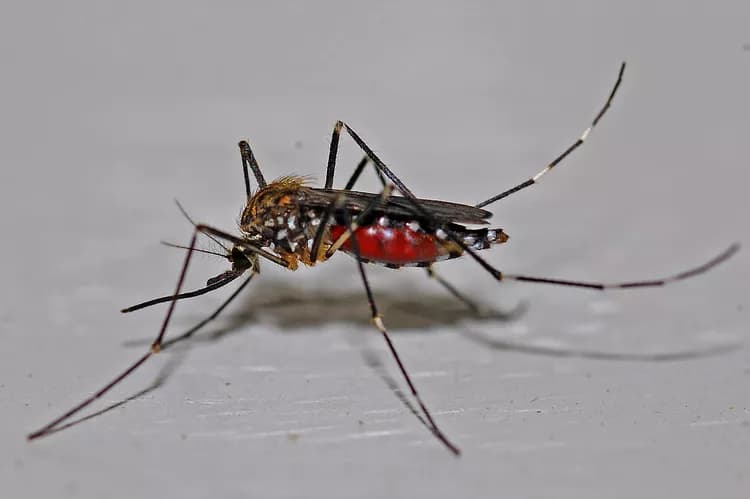
New Research Further Supports Association Between Zika Virus, Infection And Microcephaly
New research, based on data from the 2013-14 Zika outbreak in French Polynesia, further supports the association between Zika virus and microcephaly. The study, published in The Lancet, estimates that the risk of microcephaly is about 1 for every 100 women infected with Zika virus during the first trimester of pregnancy.
The authors say that quantifying the risk may help better inform the broader public health response. Although the risk of microcephaly associated with Zika virus infection is relatively low compared to other maternal infections [1], the authors say that the association remains an important public health issue because the risk of Zika virus infection is particularly high during outbreaks, such as the current one in South America.
"Our analysis strongly supports the hypothesis that Zika virus infection during the first trimester of pregnancy is associated with an increased risk of microcephaly," says Dr Simon Cauchemez, co-author from the Institut Pasteur in Paris, France. "We estimated that the risk of microcephaly was 1 in 100 women infected with Zika virus during the first trimester of pregnancy. The findings are from the 2013-14 outbreak in French Polynesia and it remains to be seen whether our findings apply to other countries in the same way." [2]
On 1 February 2016, the WHO declared the suspected link between Zika virus and microcephaly as a Public Health Emergency of International Concern. Microcephaly is a neurological abnormality that is present at birth. In Europe and Brazil, about 2 per 10000 babies are born with microcephaly. Babies are born with abnormally small heads, and the condition is associated with a reduction in brain volume, often leading to intellectual disabilities, speech impairment and behavioural issues. Causes include genetic and environmental factors, including prenatal viral infections (such as rubella or herpes), maternal alcohol use, and hypertensive disorders.
Although evidence of the association between microcephaly and Zika virus is growing, the risk has so far not been quantified. The outbreak in French Polynesia began in October 2013, peaked in December 2013 and ended in April 2014. Over that period, more than 31000 people saw their doctor with suspected Zika virus infection.
Over the course of the outbreak, 8 cases of microcephaly were identified. Of these, 5 pregnancies were terminated through medical abortion (average gestational age 30.1 weeks), and 3 cases were born. Nearly all of the cases of microcephaly (7; 88%) occurred in a 4 month period around the end of the outbreak.
In this study, the research team used mathematical and statistically modelling to estimate the expected number of microcephaly cases under different assumptions about the risk of microcephaly from Zika virus infection. They compared models where the risk was highest during different trimesters of pregnancy and a model where there was no association. The researchers used data on the total number of cases of microcephaly, the weekly number of consultations for suspected Zika virus infection, blood tests confirming the presence of Zika virus antibodies taken post-outbreak, and the total number of births during the outbreak.
By comparing these models to the number and timing of actual cases of microcephaly, they found that the scenario where the first trimester of pregnancy was associated with an increased risk was most consistent with the observed data. The researchers were able to estimate the risk of microcephaly as 95 in 10000 women (or approximately 1 in 100) infected with Zika virus in the first trimester of pregnancy.
Professor Arnaud Fontanet, co-author of the study, also from the Institut Pasteur adds: "Data from French Polynesia are particularly important since the outbreak is already over. This provides us with a small, yet much more complete dataset than data gathered from an ongoing outbreak. Much more research is needed to understand how Zika might cause microcephaly. Our findings support WHO's recommendations for pregnant women to protect themselves from mosquito bites." [1]
Writing in a linked Comment, Dr Laura Rodrigues, London School of Hygiene & Tropical Medicine, UK, says that "The finding that the highest risk of microcephaly was associated with infection in the first trimester of pregnancy is biologically plausible, given the timing of brain development and the type and severity of the neurological abnormalities," but highlights that more research is needed: "Further data will soon be available from Pernambuco, Colombia, Rio de Janeiro, and maybe other sites...The fast production of knowledge during this epidemic is an opportunity to observe science in the making: from formulation of new hypotheses and production of new results that will provide confirmations and contradictions to the refinement of methods and the gradual building of consensus."
The above post is reprinted from materials provided by The Lancet. Note: Materials may be edited for content and length.
Disclaimer: DoveMed is not responsible for the adapted accuracy of news releases posted to DoveMed by contributing universities and institutions.
Primary Resource:
Simon Cauchemez, Marianne Besnard, Priscillia Bompard, Timothée Dub, Prisca Guillemette-Artur, Dominique Eyrolle-Guignot, Henrik Salje, Maria D Van Kerkhove, Véronique Abadie, Catherine Garel, Arnaud Fontanet, Henri-Pierre Mallet. Association between Zika virus and microcephaly in French Polynesia, 2013–15: a retrospective study. The Lancet, 2016; DOI: 10.1016/S0140-6736(16)00651-6Related Articles
Test Your Knowledge
Asked by users
Related Centers
Related Specialties
Related Physicians
Related Procedures
Related Resources
Join DoveHubs
and connect with fellow professionals

0 Comments
Please log in to post a comment.